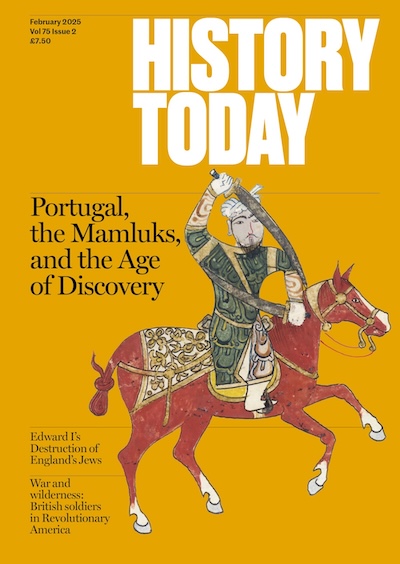Remembrance of Things Past
The maxim ‘show don’t tell’ is often forgotten when film-makers confront historical horrors, argues Suzannah Lipscomb, as two recent cinema releases demonstrate.
 David Lowenthal’s review of David Rieff’s book, In Praise of Forgetting, in the March edition of History Today is rightly scornful of the practicality or virtue of forgetting past atrocities for the sake of the present. Rieff, Lowenthal argues, is swimming against the current: it is now held that there is a point in being combatants in what the novelist Milan Kundera called ‘the struggle of memory over forgetting’. Remembering, not forgetting, is important not only in the pursuit of recognition and restitution, but, ultimately, reconciliation.
David Lowenthal’s review of David Rieff’s book, In Praise of Forgetting, in the March edition of History Today is rightly scornful of the practicality or virtue of forgetting past atrocities for the sake of the present. Rieff, Lowenthal argues, is swimming against the current: it is now held that there is a point in being combatants in what the novelist Milan Kundera called ‘the struggle of memory over forgetting’. Remembering, not forgetting, is important not only in the pursuit of recognition and restitution, but, ultimately, reconciliation.
Two recent films are designed to remember important historical atrocities. Both are love stories – Bollywood meets Downton Abbey in one, a Ukrainian Dr Zhivago in the other – set against geopolitical events. One, Viceroy’s House, by Gurinder Chadha, tells the story of the Partition that accompanied the granting of independence to India in 1947, in which a million people died and up to 12 million were displaced in the century’s largest peacetime migration. The other, Bitter Harvest, by George Mendeluk, recalls one of the least-known tragedies of recent history; the Holodomor, a famine in Ukraine in the winter of 1932-33, in which between three and nine million people died.
I knew something about Partition, but almost nothing about Holodomor. In this, they achieved one of the purposes of historical films: they left me with the desire to know more. Each step has taken me into murkier territory, for both tell contested histories.
Discussion of the British Raj is hot right now: see Jon Wilson’s fine book from 2016, India Conquered, for a challenge to the idea that there was ever a civilising mission, or Shashi Tharoor’s new book – titled Inglorious Empire in Britain and, tellingly, An Era of Darkness in India – for an even more damning verdict. Viceroy’s House plays fair with its depiction of British divide-and-rule policies on one side and growing Hindu-Muslim tensions on the other. It dodges one allegation – the affair between Edwina Mountbatten and Jawaharlal Nehru – but makes another – that Winston Churchill was personally responsible for the catastrophically shoddy division of British India into India and Pakistan.
Bitter Harvest seeks to tell an even more charged interpretation of the past. As the first English-language film to tell this story, it espouses the view of historians, such as Robert Conquest and Timothy Synder, that the Holodomor was genocide by starvation, a man-made famine imposed by Stalin’s collectivisation policies. Soviet and Russian histories, by contrast, consider it to be a tragedy, but not man-made or intentional. As recently as November 2016, the Ukrainian President Petro Poroshenko called for the Holodomor to be recognised internationally as a genocide (in 2008 the European Parliament would go no further than saying it was a crime against humanity). This historical interpretation is, therefore, politically loaded and tied to Ukrainian national identity. As the producer has stated, it was motivated by a desire to bring ‘restitution to the families of the victims’ and that this atrocity get ‘the recognition that history demands’.
The film is raw: not just from the horror of the historical narrative but because, despite some excellent acting, there are problems with this film, many of which come from the fact that it is insistently arguing a case. It contends that the famine was a result of the forcible collectivisation of farms, that priests were attacked and church goods seized, that the Soviets set impossible quotas for grain production and that terrible punishments were imposed on those who resisted collectivisation or failed to produce necessary amounts. It depicts Stalin as the agent of this evil, imposing starvation on millions because he is frustrated by disobedience. The local Soviet commissar is similarly portrayed as irredeemably villainous. What makes me uneasy is that these things may be – indeed almost certainly are – true, but the desire to tell the story in such piebald terms renders the atrocity almost unbelievable.
So, the way films remember historic events is troubling. A film can convey a convincing interpretation that cannot be rebutted or it can make the truest of events far-fetched. I am reminded again of Philippa Gregory’s dictum: ‘a convincing lie is a wicked thing’. An unconvincing truth is surely just as lamentable.




